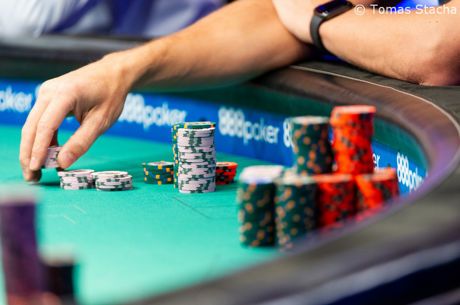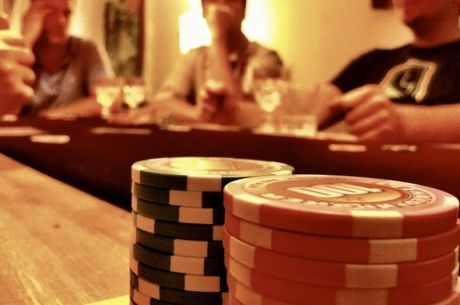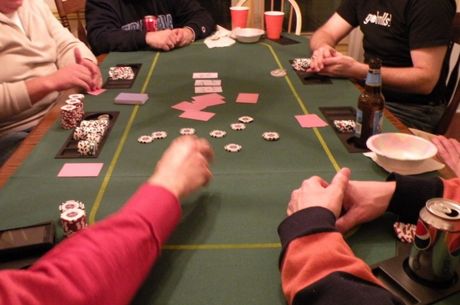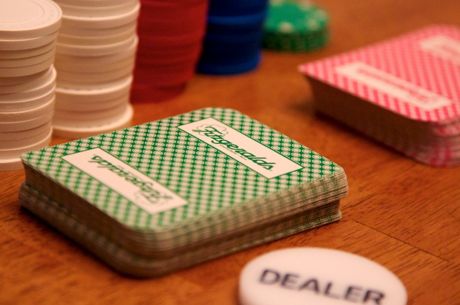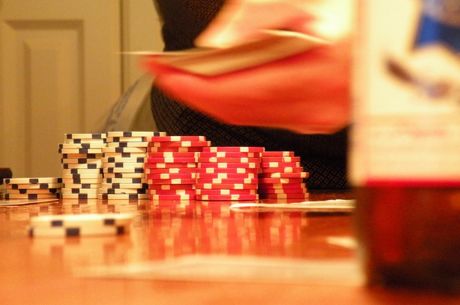Home Game Heroes: Five Reasons Why You Aren’t Winning in a “Great” Home Game

A player in that great home game you’ve heard about has finally invited you to play. You’ve gone to the game, have been accepted by the group, and now you are a regular. It’s a great group of guys, with excellent fellowship, a nice spread, and many seemingly poor home game players from whom to win money. Congratulations!
But there’s a serious problem. You have been losing! And you can’t figure out why.
Here are five things that you should consider about the game which may be contributing to your losses. And when you’ve figured them out, I’ll show you what you can do to turn things around in my next column.
1. You’re Too Clever By Half
Bad players are generally bad for one reason — they call too often with poor hands. The chief difference between a typical home game among casual players and a casino game among good players is that the casual home game players have much lower standards for playing their hands. That means if you’re trying to use clever plays to confuse and exploit your opponents, you may well be costing yourself a lot of money.
I remember a friend of mine, someone I had first met at Foxwoods in a tough Omaha game. I invited him to come play in my home game. He lost an enormous hand and bellyached that his opponent should have folded to his bluff, since he had the ace of a suit and was representing the nut flush with his raise. His opponent had called him down with a lower flush, in spite of my friend’s huge bet on the river.
My friend had brought his tough, clever, and deceptive game to my house — and he had run into a calling station who didn’t know enough to be fooled.
2. You Play Too Aggressively For the Turf
In a casino poker room, the goods often go to the player who is willing to take the most risks with aggressive play. Against the typically tight, aggressive opponents you find in a public room, you can often win pots by representing a strong hand while serious players avoid the risks of standing up to you. But against home game players, you may be hurting your bottom line with your uber-aggressive play, risking much more than you need to on borderline hands and interfering with your opponent’s natural inclination to call.
By playing extremely aggressively in a game that is typically more passive, you may be needlessly sticking out. In the process you might be scaring away opponents who might otherwise be calling you with subpar hands and keeping as opponents only those players with monster hands that are well ahead of you.
Imagine the first round of a flop game with blinds. In a tough casino game, it is typical for at least one player to raise the blinds and not uncommon for a third player to reraise. But in many home games, this is highly unusual. Players whom you want in with their bad hands are scared into folding by an unusually aggressive move (for this game), while players with huge hands stay in to draw against you. In other words, your aggressiveness may be increasing your risk without doing much for your reward.
3. You’re Seeing the Forest, Not the Trees
You’ve noticed that this should be a good game. There are many casual players who are out to have a good time more than they are trying to win money. That’s what attracted you to the game in the first place — all the “bad” players.
But you don’t play against the average level of your opponents as a group. You play against each one of them individually. And in your zeal to exploit their collectively weak play, you may have failed to address each of their particular styles.
Just because you are the most experienced and thoughtful of the players (if indeed you are), that doesn’t mean that you are foreordained to win every contest. You must take specific actions against specific players. At the same time, if your game has been ramped up in a general sort of way, you may well be making yourself exploitable even by the relatively unsophisticated players you’re up against.
4. Not Paying Attention to the Rake
Not all home games are created equal. Gone are the days when the great majority of home games were just free, easy-going affairs among friends, rotating each week with the expectation that everyone was in it for a good time and little else. Today some home games, though still featuring easy lineups of casual players, are run for a profit — occasionally an extremely high profit.
Setting aside legal questions regarding such games, be aware that these profit-driven games can sometimes consist of a 10% rake up to a maximum of any amount. Those who operate games like these try to hide their avarice behind such lines as “it just covers the food” or “the game is so good that you won’t notice the rake.” But believe me when I tell you that both lines are usually bullshit.
With a professional dealer, it is common to be dealt 40 hands an hour. If the house is raking 10% up to a maximum of $7, and you are tipping the dealer $1 a hand, then the game is raking off up to $250 or so every hour. That’s an average of $25 an player per hour. If players bring an average of $300 to such a game and play for 8 hours, the house is raking $2,000 of the $3,000 total brought to the game.
I don’t care how good you are — you are going to lose in that game!
5. Underestimating Your Home Game Opponents
Though home game players tend to be less skilled than those you’ll face in the typical casino game, that doesn’t mean that you are better than each of them. Players vary. Some “casual” players are very strong. Some excellent players find their way into home games — after all, you did!
Though your typical home game opponents may approach the game with a friendly, happy-go-lucky attitude, that doesn’t mean that they don’t have skills that rival or exceed yours. Their laid-back, somewhat passive style may cloak their understanding of what really works best in their home game — something that you may not have figured out.
I recall one regular weekly home game where I initially interpreted the loose-passive style of a couple of the regulars as a sign of weakness and poor play. A few thousand dollars later I realized that they had adopted this style to best exploit their opponents in a way that my hyper-aggressive style didn’t do. Recognize the possibility that one of the reasons you may be losing is that your opponents are simply playing better than you are.
Next time we’ll talk about making adjustments to help counter these reasons potentially preventing you from winning in that “great” home game.
Photo: “,” TineyHo. .
Ashley Adams has been playing poker for 50 years and writing about it since 2000. He is the author of hundreds of articles and two books, Winning 7-Card Stud (Kensington 2003) and Winning No-Limit Hold’em (Lighthouse 2012). He is also the host of poker radio show House of Cards. See for broadcast times, stations, and podcasts.
Want to stay atop all the latest in the poker world? If so, make sure to get PokerNews updates on your social media outlets. on Twitter and find us on both and !




